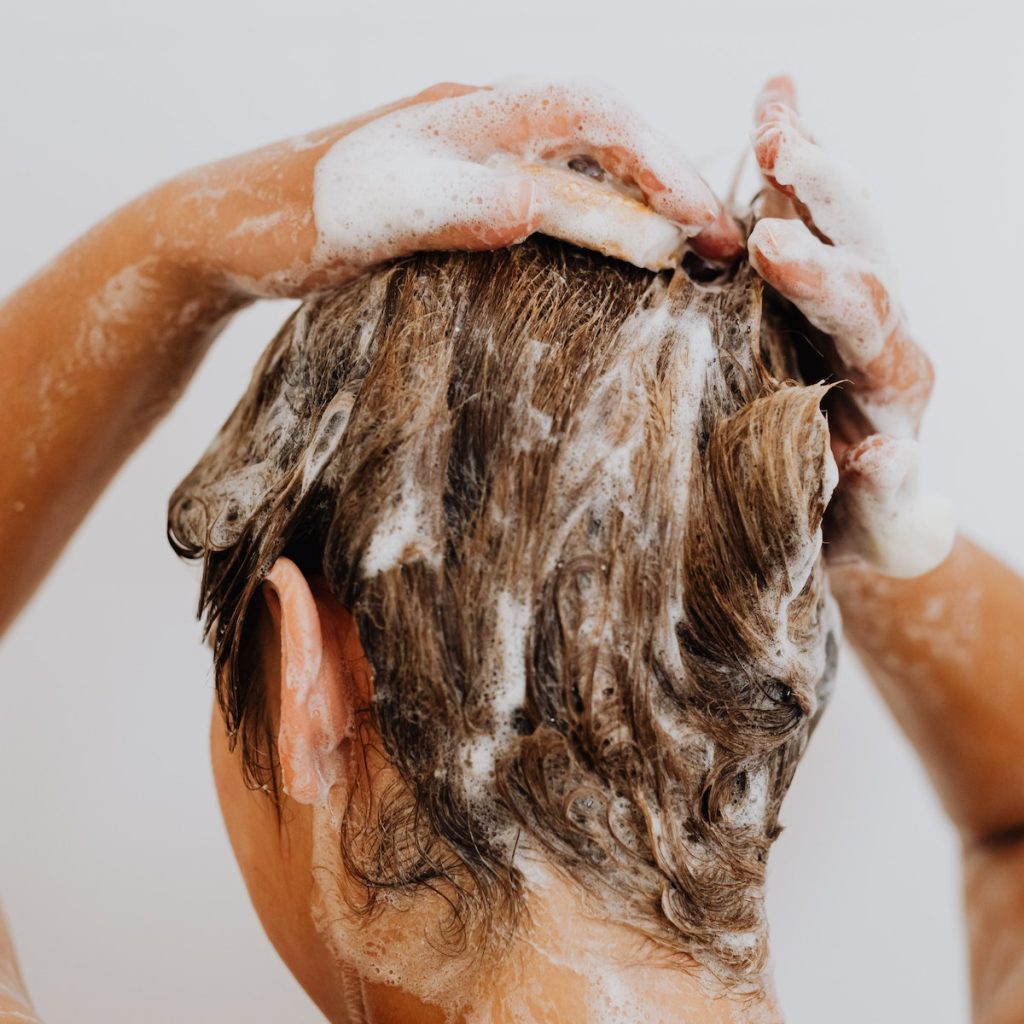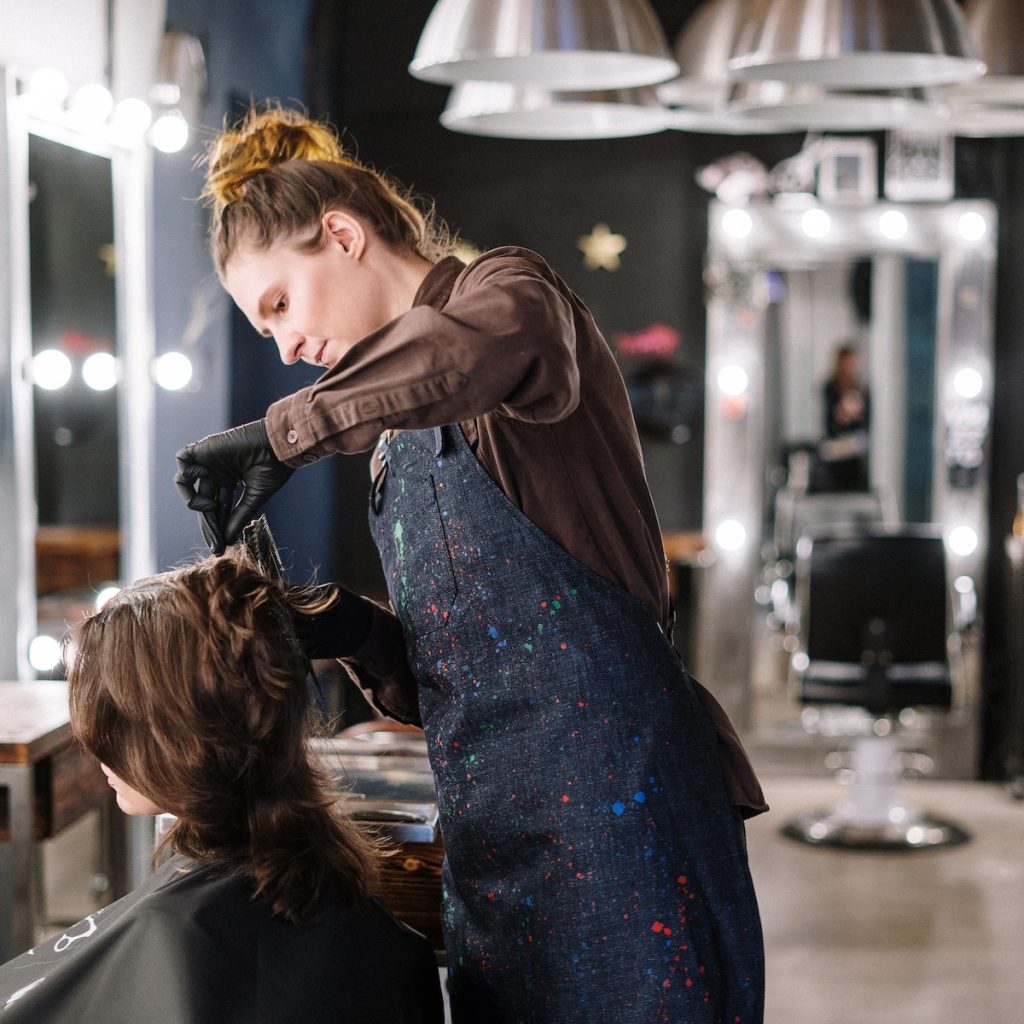Discover the truth about sulfates and their impact on hair color.
Can Sulfates Strip Hair Color or Cause Color Fading?
Throughout the world of hair care, sulfates have been both praised and vilified. With their ability to create rich lather and provide a deep cleanse, sulfates have become a common ingredient in many shampoos and hair products. However, there is a growing concern that these powerful chemicals may strip hair color and cause color fading. In this article, we dive into the magical world of sulfates and explore whether they are indeed the villains they are sometimes made out to be.

Understanding Sulfates: What Are They?
Before we delve into the world of sulfates, let’s first understand what they actually are. Simply put, sulfates are a type of surfactant, a class of chemicals that act as powerful cleansing agents. They work by binding to dirt and oils on the hair, allowing water to rinse them away easily. Sulfates are derived from sulfuric acid and contain a sulfonic group, hence their name. Now, let’s take a closer look at the chemical composition of sulfates.
The Chemical Composition of Sulfates
At their core, sulfates consist of a hydrophilic head, which is attracted to water, and a hydrophobic tail, which is attracted to oil and dirt. This unique structure allows sulfates to effectively remove dirt and oil from your hair, leaving it feeling fresh and clean. However, this powerful cleansing action has led to concerns about whether sulfates can also strip away hair color.
When sulfates come into contact with hair color, they can potentially remove some of the dye molecules from the hair shaft. This is because sulfates have the ability to break down the chemical bonds that hold the dye molecules in place. However, it’s important to note that the extent of color fading can vary depending on factors such as the concentration of sulfates in the product and the duration of exposure. Additionally, the impact of sulfates on hair color can be mitigated by using color-protecting products and minimizing the frequency of sulfate-based cleansers.
Common Products Containing Sulfates
Sulfates can be found in a wide range of hair care products, including shampoos, conditioners, and styling products. They are often listed as sodium lauryl sulfate (SLS) or sodium laureth sulfate (SLES) on ingredient labels. These ingredients are known for their ability to create a luxurious lather and remove impurities from the hair, but are they causing more harm than good?
While sulfates have been criticized for their potential to strip away natural oils from the hair and scalp, leading to dryness and irritation, it’s important to consider individual factors and preferences when deciding whether to use sulfate-containing products. Some people may find that sulfates are too harsh for their hair and prefer sulfate-free alternatives, while others may appreciate the deep cleansing and foaming properties of sulfate-based products. Ultimately, it’s a matter of personal choice and finding the right balance between effective cleansing and maintaining hair health.
It’s also worth noting that there are alternative surfactants available that offer gentler cleansing without the use of sulfates. These include ingredients like cocamidopropyl betaine, decyl glucoside, and lauryl glucoside, which are derived from natural sources and are considered milder on the hair and scalp. If you’re concerned about the potential drawbacks of sulfates, exploring sulfate-free or low-sulfate options may be worth considering.
The Role of Sulfates in Hair Care
Now that we have a better understanding of what sulfates are, let’s explore their role in hair care and why they are so commonly used.
Sulfates, such as sodium lauryl sulfate (SLS) and sodium laureth sulfate (SLES), have long been the go-to ingredients in many shampoos and hair care products. They are known for their excellent cleansing properties and are widely used in the industry.
How Sulfates Cleanse Your Hair
The primary function of sulfates is to cleanse the hair by removing built-up dirt, oils, and product residues. When you use a shampoo containing sulfates, they work by breaking down the oil and dirt on your scalp and hair strands. This allows water to rinse away the impurities, leaving your hair feeling clean and refreshed.
Sulfates are surfactants, which means they have both hydrophilic (water-attracting) and lipophilic (oil-attracting) properties. This unique characteristic allows sulfates to effectively remove dirt and oil from the hair. The hydrophilic part of the sulfate molecule attracts water, while the lipophilic part attaches to the oil and dirt, enabling them to be easily washed away.
Furthermore, sulfates create a rich lather when mixed with water, which enhances the overall cleansing experience. The lather helps to distribute the shampoo evenly throughout the hair and scalp, ensuring that every strand is thoroughly cleansed.
Potential Benefits of Sulfates
While sulfates have gained a reputation as hair color villains, they do come with a host of benefits. For starters, sulfates can help to create volume and add body to your hair. The cleansing action of sulfates removes excess oils and product build-up, which can weigh down the hair and make it appear flat. By effectively removing these impurities, sulfates give your hair a lightweight and voluminous look.
Additionally, sulfates allow other beneficial ingredients in your hair care products to penetrate more deeply into the hair shaft. This improved penetration enhances the effectiveness of conditioners, hair masks, and other treatment products, leaving your hair healthier and more nourished.
Furthermore, sulfates are often used in anti-dandruff shampoos due to their ability to remove flakes. Dandruff is often caused by a yeast-like fungus called Malassezia, which feeds on the natural oils on the scalp. Sulfates effectively cleanse the scalp, removing excess oil and dead skin cells, which helps to control dandruff and soothe an itchy scalp.
It is worth noting that while sulfates have their benefits, they may not be suitable for everyone. Some individuals with sensitive scalps or dry hair may find that sulfates strip away too much natural oil, leading to dryness and irritation. In such cases, sulfate-free alternatives may be a better option.
In conclusion, sulfates play a significant role in hair care by effectively cleansing the hair and scalp. They offer benefits such as volumizing the hair, enhancing the penetration of other beneficial ingredients, and controlling dandruff. However, it is important to consider your hair type and individual needs when choosing hair care products containing sulfates.
Sulfates and Hair Color: The Connection
Now, let’s address the elephant in the room – can sulfates really strip away your beloved hair color? Let’s find out!
But before we dive into the details, let’s first understand what sulfates are. Sulfates are a type of surfactant commonly found in many shampoos and hair care products. They are responsible for creating the lather and foam that we associate with cleansing.
How Sulfates Can Affect Hair Color
There is a common belief that sulfates can cause hair color to fade or become dull. This notion stems from the fact that sulfates are powerful cleansers and can potentially remove some color molecules from the hair shaft. When we dye our hair, the color molecules penetrate the hair cuticle and attach themselves to the hair shaft. So, it’s understandable why people worry that sulfates might wash away these color molecules, resulting in color fading.
However, the extent to which sulfates affect hair color is still a topic of debate among experts. Some argue that the amount of color loss caused by sulfates is minimal and can easily be counteracted by using color-safe products and following a proper hair care routine.
Scientific Studies on Sulfates and Hair Color Fading
Several scientific studies have been conducted to shed light on the relationship between sulfates and hair color fading. One study found that sulfates can indeed strip away some hair color, especially if the dye molecules are not properly bound to the hair shaft. This suggests that the quality of the hair dye and the application process play a significant role in determining the impact of sulfates on color fading.
On the other hand, another study found no significant color fading when sulfates were used in combination with a high-quality hair dye. This indicates that the formulation of the shampoo and the presence of other ingredients can also influence the interaction between sulfates and hair color.
It’s important to note that the results can vary depending on various factors, including the type of hair dye, the condition of the hair, and the specific formula of the shampoo. Additionally, individual differences in hair texture, porosity, and color retention ability can also affect how sulfates interact with hair color.
So, if you’re concerned about sulfates affecting your hair color, it’s essential to choose sulfate-free or color-safe shampoos specifically designed to preserve the vibrancy of your hair color. Additionally, following a proper hair care routine, including using products formulated for color-treated hair and minimizing heat and chemical treatments, can help maintain your hair color for longer periods.
Alternatives to Sulfates in Hair Care Products
If sulfates have you worried about the fate of your hair color, fear not! There are plenty of sulfate-free alternatives available that can still give you a luxurious lather without the potential color-stripping effects.
Sulfate-Free Shampoos and Conditioners
One of the easiest ways to avoid sulfates is to opt for sulfate-free shampoos and conditioners. These products are formulated with alternative cleansing agents that are gentle on the hair and scalp while still providing an effective cleanse. Look for labels that advertise “sulfate-free” or ingredients like cocamidopropyl betaine, which is known for its mild cleansing properties.
Natural Alternatives to Sulfates
If you prefer to stick to natural ingredients, there are also plenty of options available. Ingredients like aloe vera, coconut oil, and castile soap can provide a gentle cleanse without the harsh stripping effects of sulfates.
Expert Opinions on Sulfates and Hair Color
Now that we have explored the science behind sulfates and hair color, let’s see what the experts have to say about this controversial topic.

Hair Care Professionals Weigh In
Many hair care professionals agree that sulfates can indeed contribute to color fading, especially in vibrant or high-maintenance hair colors. They recommend opting for sulfate-free products to preserve the longevity and vibrancy of your hair color.
Dermatologists’ Views on Sulfates
Dermatologists, on the other hand, have a slightly different perspective. They emphasize that the potential color-stripping effects of sulfates are minimal and that the overall health of your hair and scalp should take precedence. They suggest focusing on maintaining a healthy hair care routine and using products that are suitable for your specific hair and scalp needs.
In Conclusion
So, can sulfates strip hair color or cause color fading? While sulfates have the potential to remove some color molecules from the hair, the extent of their color-stripping effects can vary depending on several factors. If you are concerned about preserving your hair color, opting for sulfate-free products or natural alternatives may be a wise choice. Ultimately, finding the right balance between effective cleansing and preserving your hair color is key. Remember to listen to your hair, experiment, and most importantly, have fun with your hair care routine!





